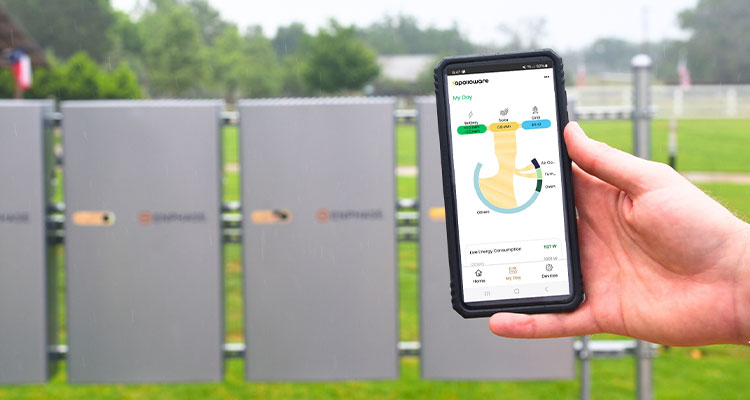
How Bandera Electric Cooperative has evolved its capabilities to better serve its members
Founded in 1938, Bandera Electric Cooperative has enjoyed a rich history over the past 87 years. Energy, Oil & Gas joins CEO Bill Hetherington to get some highlights: “We began as part of the Rural Electrification Administration under President Roosevelt,” he begins. “Our primary goal at the time was to bring electricity to rural parts of the United States, primarily here in Texas. Bandera Electric Cooperative was formed to serve a seven-county area northwest of San Antonio, which was considered too rural for the main power companies to serve. 
“As a member cooperative, we’re owned by our members, so the people who buy electricity from us own us and we borrow money on their behalf. Their electric bill is paid each month as part of their equity. This makes us unique. We’re very much focused on providing the services our members need and want, with the goal of enhancing their quality of life because rural areas don’t have the same opportunities as urban areas.
“I joined the company in 2013, and we were intent on changing that situation. I’m happy to report that we’ve accomplished a lot since then. We were selling meter cans and water heaters and still giving away light bulbs until 1986. We were a very slow-moving, bureaucratic company. I changed all that in 2013. I asked the membership, the people who own us, what they wanted. The number one thing our members wanted was high-speed internet. This is a rural area of Texas, so this presented quite a challenge.
“We initially tried to partner with other companies, but nobody wanted to provide broadband here, so we decided to take fiber to the home, and I put together a business plan. Fiber optic communication not only enables broadband, phone service, VoIP, and whatever else you need, but it also provides grid automation. So, it’s also a way for us to operate the electric system.
“The second thing they wanted was alternative energy because, in 2013, most of our customers were getting bad deals from solar contractors who do a really good job of selling solar but aren’t really interested in the customer’s best interests. As a result, we got into the solar business and now we provide solar power and battery storage. Lastly, our members wanted energy efficiency and for us to help them finance that in order to control their energy costs. In 2016, we started developing software, which is a real-time energy management platform that allows our customers to understand how they use energy. We did this because, in order to solve a problem, you first need to understand it, and I’m happy to report we’ve now satisfied all the members’ concerns. We’re now one of only two companies in North America that has been certified by ERCOT (Electric Reliability Council of Texas), which is the independent grid operator in Texas, for aggregating those systems into a virtual power plant and selling those resources back to the market for our customers’ benefit. That’s a pretty substantial accomplishment in just a little over ten years.”
 Reliability and resiliency
Reliability and resiliency
Bill then goes on to explain how the company’s software platform has transformed reliability and responses to extreme weather events: “We built the Apolloware software platform to monitor the meter, the air conditioners, pool pumps, water heaters, and various appliances every second. We are constantly receiving data points about the state of your appliances. The philosophy that we have, which is rather unique, is that the electric grid no longer stops at the electric meter. With so much solar and battery going in behind the meter, at least here in Texas, we’ve got to realize that these resources are part of the grid, as well as the loads that are connected behind the meter. So, what we’re doing is monitoring these edge devices. Customers get alerts if their air conditioner is not running right, or if their water heater or water pump is about to fail. After winter storm Uri, a University of Texas consultant found that with a greater awareness of how they are utilizing their energy, customers save around ten percent on their electric bill.
“Since we’re monitoring at the actual edge of the grid, we’re receiving real-time data, and that allows us and customers to troubleshoot any problems and to optimize the loading on the system. It also enables us to better plan when systems need expanding. Of course, it also helps reduce outages. We’ve recently started a full battery backup for the home, costing just $36 a month, which provides customers with the peace of mind that they’ll never have another outage again. These are the kinds of measures we are taking to enhance the reliability and resiliency of the electric grid.”
Industry recognition
It is clear that Bill and the Bandera team have worked relentlessly to improve the lives of its customers in rural areas. Recognizing its efforts, in 2024 the business was awarded the Texas Impact Enterprise Award for Innovation, by the Inclusive Economy Consortium associated with the Southern Methodist University’s Hunt Institute for Engineering & Humanity, and their partners. “We’re very happy to receive that recognition of how we can impact the communities we serve,” said Bill. “We a smaller co-op and were actually shocked to win, but really appreciate that award.”
Bill then concludes by outlining the company’s vision for the future: “I really hope that in five years, Bandera Electric will get more recognition, really as the leader in the industry in Texas. I also want to see these projects pay off for our customers, reducing their bills and improving the reliability of their service.”
 Reliability and resiliency
Reliability and resiliency